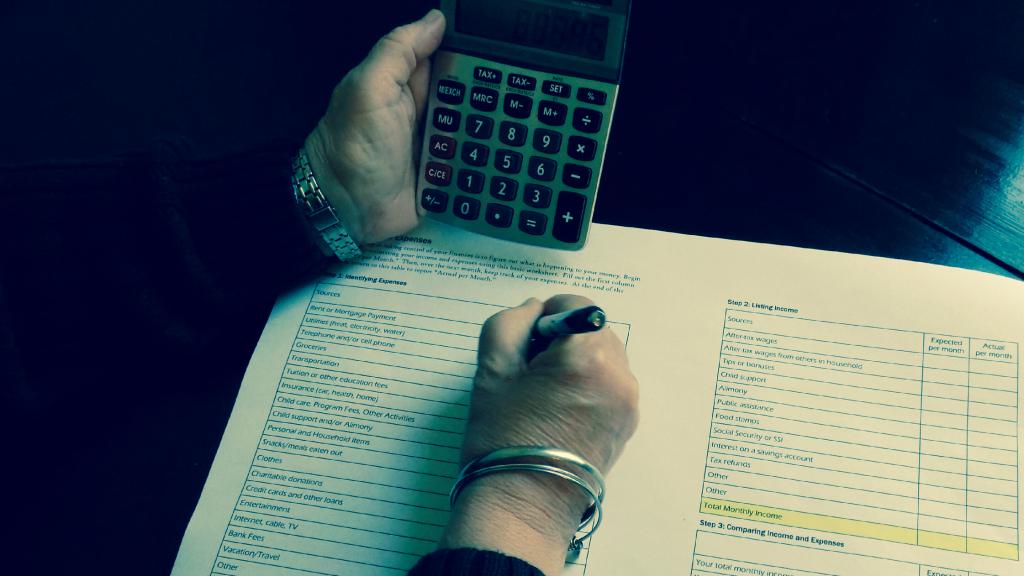When spouses get divorced, their children become the most vulnerable and unhappy. But the law protects them by obliging the parent who has left the family to support common children. Unfortunately, in our time there are frequent cases when a parent does not want to participate in the fate of his children anymore and does not provide them financially. Then the other parent raising them (usually the mother) may require child support payments. One of the most important points to consider is the maturity date after child support. It is established by law and must be strictly enforced.
Payments are not always set by the court. Parents can agree on them voluntarily. Then the transfer of alimony is carried out at the time that they specify in the agreement. In this case, it consists in a certain order.

Assignment Methods
If the spouses manage to terminate the official relationship without completely ruining it, then there is the opportunity to agree among themselves on the further maintenance of the child. Only in the absence of such a mother has to go to court to oblige her father to pay child support. Thus, alimony is listed on the basis of one of the documents:
- writ of execution;
- court order;
- agreement.
Each of the documents is drawn up in different cases, depending on the current situation. This arrangement affects how you pay child support in the future.
Performance list
Most often, collection is carried out according to the writ of execution. This document is issued in court. To receive it, the plaintiff draws up a statement of claim and sends it to the court with the necessary documents.
At the hearing, the parties present evidence that they have, and if there are witnesses, they are involved. Based on all the documents and circumstances of the case, the court makes a decision, and a plaintiff is issued a writ of execution.
This document is then referred to the bailiffs, who institute enforcement proceedings and control the recovery process. Alimony from the official salary is paid from the moment the lawsuit is filed, and payments generally end when the child reaches the age of majority.
Agreement
This document is concluded between the former spouses by their own will and mutual consent. Not everyone can agree on this issue, but if it succeeds, the child receives the necessary material support on time, and also experiences much less stress than in other situations.
The agreement must be certified by a notary public. This specialist also checks it for compliance with applicable law. The fact is that the conditions in the document cannot be worse than those provided by law.
From the moment the parties sign the agreement, the payer must comply with obligations and pay alimony. If the conditions of the contract are not fulfilled, the person bears civil liability. The agreement has the same legal force as a writ of execution and a court order. Therefore, it can be sent to the bailiffs or brought to court as evidence in the maintenance case.

Court order
Unlike lawsuit proceedings, when a case is examined in a standard manner, issuing a court order implies a simplified procedure.
Mother only needs to write an application for a court order, attaching the necessary package of documents. The court must review the case within five days and issue an order.However, if the alimony does not agree with at least some provisions, he will send an objection to the court, on the basis of which the court order will be canceled. Alimony for one child, two or more, is calculated from the moment of going to court until the age of eighteen.
Accrual methods

There are several ways to accrue child support for a minor child. These include the following.
- A fixed amount of deductions is established, that is, in a fixed amount. This method is used if the alimony does not have regular income or with the seasonal method of work.
- The periods for the payment of alimony are not considered if they are transferred in full at the same time. The method most often takes place when the child support person leaves Russia for permanent residence in another country and cannot support the child every month.
- The payment is not in money, but through material assets. If the alimony payer owns real estate, a car, or other valuables, with the consent of the payee, the property may be transferred against alimony.
- Other methods are possible.
But the most common, of course, is the way in which child support for one child is paid every month. It is also necessary to take into account the fact that when the debt is accumulated, the payee has the right to file a claim with the payer in court demanding to pay off the debt for the previous period. This right applies even to cases when a child is 18 years old. The only feature is that the adult claim is in its own name.
Payout frequency
The frequency of the transfer, as well as the dates for the payment of alimony after the payment of salaries, are provided for by the RF IC. According to him, from a parent who has left the family, a certain amount of earnings is allocated every month, allocated to provide for the child.
This is to protect children. It is their interests that the bailiffs are guided in their activities. When concluding a voluntary agreement, parents have the right to set the most convenient time for both to pay child support after salary. Thus, payment in this case is not necessarily made once a month. It can be produced once a quarter, and even once a year.

From what moment is the amount credited
Depending on the underlying document, payments are made as follows:
- for a court order - from the date of appeal to the judicial authority;
- for a writ of execution - from the date specified in the court decision;
- for agreement - from the date of signing the document.
It also happens that by the time the first child support is transferred, a certain debt has already formed. This is due to the length of the trial, and in some cases due to the specifics of the enforcement proceedings.
Maximum maturity
All accountants need to know what the maximum term for child support payments after salary means. After all, the responsibility for a timely operation rests with them. In the details of the executive document, as a rule, bank details for the transfer of accrued funds are indicated.
Withholding and transfer of alimony is usually carried out on the same day when wages are also issued. But the maximum period in which they must keep within the accounting department is three days after the payment of salaries.
Due to violation of this period, a penalty may occur. And if the income of the alimony is hidden due to the fault of the accountant, the latter can even be brought to criminal liability.
Holiday pay
Both the period of payment of alimony after the salary, and the period from vacation is not more than three days from the date of issue of compensation.If the company has not paid alimony, leave must be postponed until the relevant material assistance is transferred to the recipient in a bank account. It should be borne in mind that alimony is also deducted from benefits received by the alimony.
Premium Payouts
Bonus payments, like other earnings, are included in the base from which alimony is paid. The term in this case, as well as in others, is no more than three days from the date of issuance of the incentive to the employee.

If debt has accumulated
Alimony debt is formed quite often. As indicated above, this is due, inter alia, to a difficult procedure. Therefore, payments do not arrive at the recipient's account on time far from always due to the fault of the child support. The most common causes include:
- non-payment intentional (usually the fault of the payer);
- refusal of alimony by the recipient (own will);
- lack of official work with the payer, illness, and other similar reasons (current circumstances of the alimony payer);
- lack of details of the beneficiary's account (payee's fault).
If the parent did not write a waiver of alimony, but the payments ceased, the bailiffs should be informed immediately. It is unlikely that they themselves will respond to this immediately. Usually, child support checks are carried out once a quarter, and even less frequently. Therefore, the exactor should act actively so that child support, by mail or otherwise transferred, is renewed.
After conducting verification activities, the bailiff issues a decision on the calculation of debt. Information about this is publicly available on the virtual resource of the bailiff service. To receive it, it is enough to dial the number of the executive case, the name of the debtor, and also the region of his residence. Some applications can be submitted directly on the website in your account.
If it is established that the delay occurred due to erroneous or untimely actions of the accountant, the company must pay a penalty. For each day of delay, this amount will be 0.5% of the amount owed. The accountant will also bear personal responsibility.

If an alimony is fired
Any employee can quit his job on one of the following grounds: of his own free will, reduction, or upon liquidation of the company. In the first case, a full calculation is made taking into account vacation pay that has not been used. Then alimony must be transferred as always, within three days after the payment of wages to the dismissed employee.
Upon dismissal due to reduction or in connection with the liquidation of the company, the payment deadlines remain the same as before. In this case, you need to know that alimony from severance pay is not listed.
Measures for non-compliance with the allotted period
Regardless of whether child support is paid from a minimum wage or a larger salary, they must be accrued on time. The payer evading payment, as well as other responsible persons due to which the debt was formed, shall be held liable:
- civilian;
- administrative
- criminal.
Punishment depends on the degree of guilt of the offender. Law enforcement agencies do this on the basis of appeals from bailiffs or directly exactors. The most common preventive measures include the following:
- accrual of forfeit;
- a ban on traveling abroad;
- deprivation of a driver’s license;
- criminal prosecution (in the presence of a large debt).
If the parent who left the family does not pay at all for the maintenance of the child, often changes his place of work and does not report about it, or doesn’t specially arrange anything officially, then he can be deprived of parental rights. Then in the future, the child’s responsibilities will not include the payment of alimony for his maintenance, if he decides to go to court.
The legislative framework
In the Family Code, a whole fifth section is devoted to this issue. Chapters 13-17 speak of obligations towards children, as well as to parents and other family members: how to make agreements, and how to pay child support. Information on the dates is contained in chapter 17 of the RF IC. The main articles that relate to the issue under consideration are the following:
- Article 107, on the period of circulation and the limitation of maintenance payments;
- Article 109, on accounting liability for transfers of alimony;
- Article 113, on the definition of debt;
- Article 115, on forfeit;
- Article 117, on the indexation of alimony.

Conclusion
Despite the fact that collecting child support is a complex and lengthy procedure, the law always remains on the side of the child and the parent who is raising him. But each of the parties has the right to protect its interests. To avoid unnecessary problems, it is better not to allow a long delay in the payment of alimony by the father. Then the children will receive the necessary security, and the alimony will not be prosecuted.
